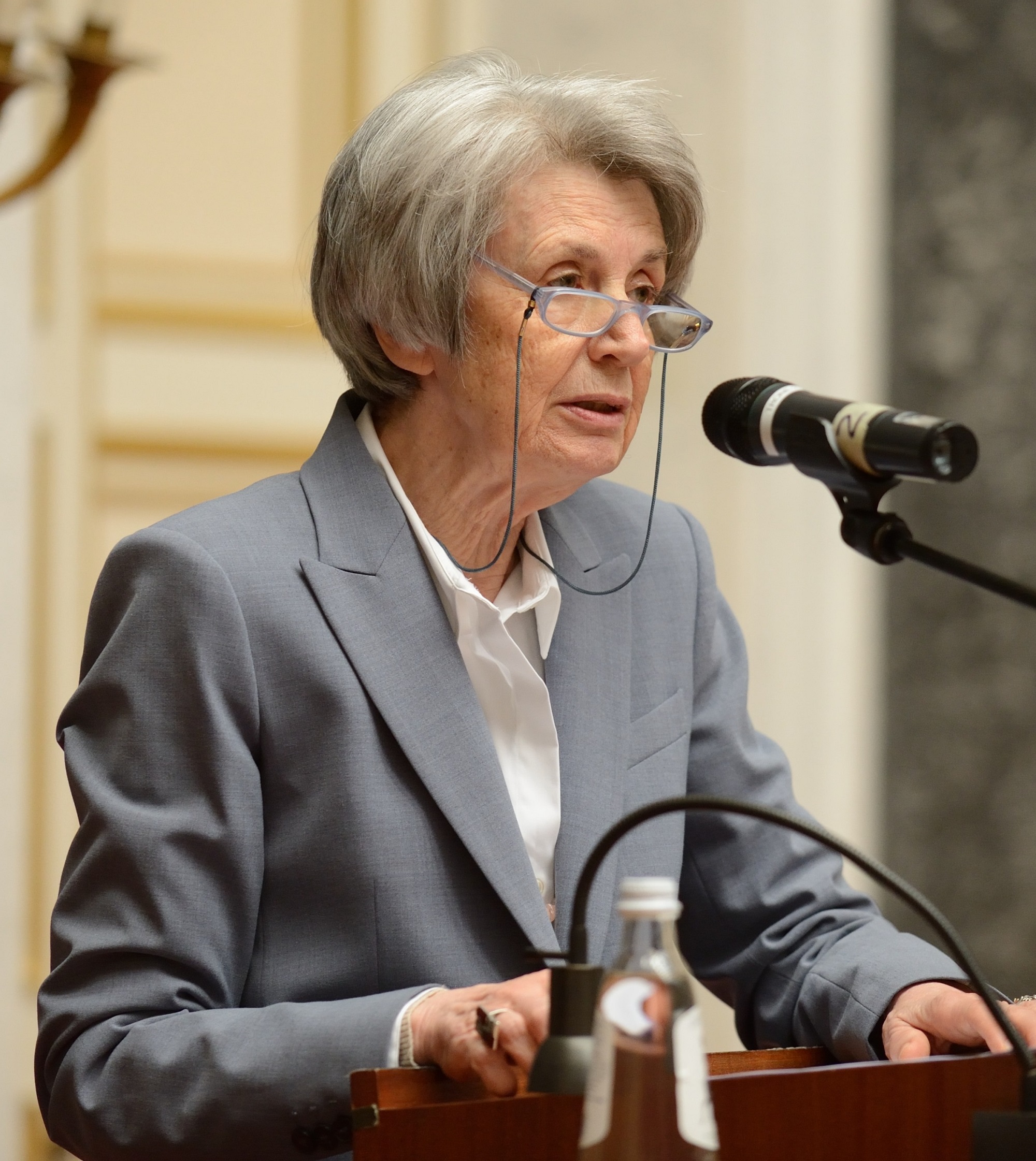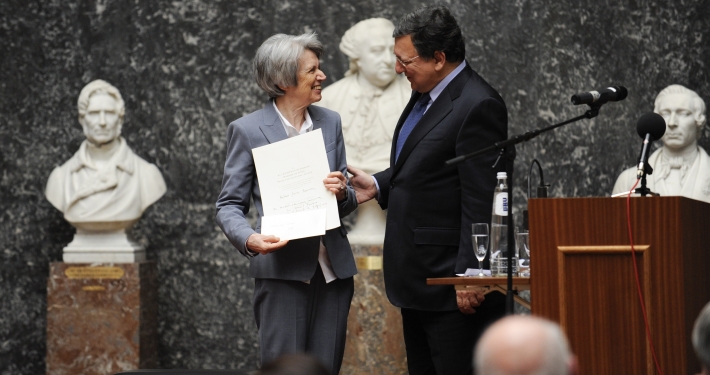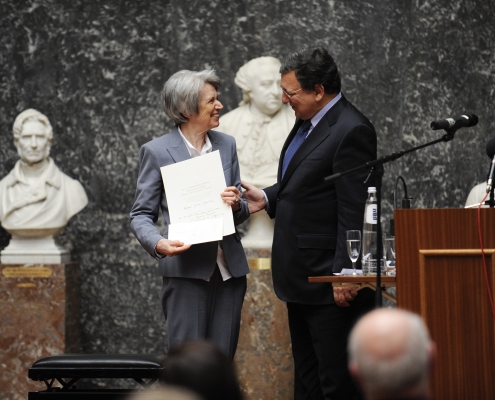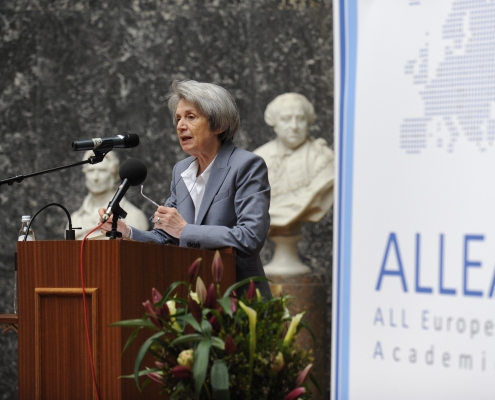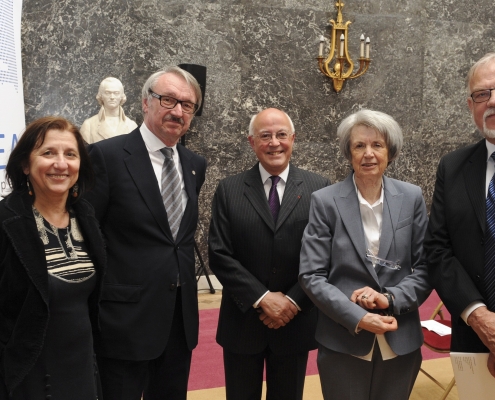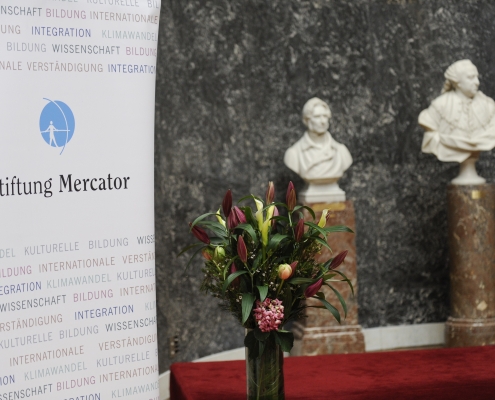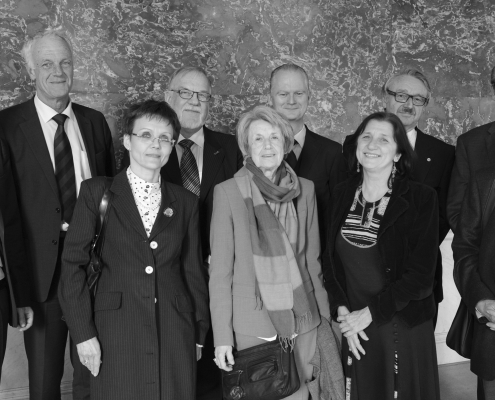2014 Madame de Staël Prize
Professor of Cultural History Luisa Passerini receives the 2014 All European Academies Madame de Staël Prize for Cultural Values
The first All European Academies Madame de Staël Prize for Cultural Values was awarded for the first time in 2014 to Luisa Passerini, Professor of Cultural History at the European University Institute, Florence, Italy.
Luisa Passerini
Luisa Passerini is part-time Professor at the European University Institute, Florence, Italy, visiting Professor at the Columbia University, New York, and former Professor of Cultural History at the University of Turin, Italy. She has taught and conducted research in many different Universities in various countries in Europe and in other continents (Africa, Australia, USA).
She currently heads the research project Bodies Across Borders: Oral and Visual Memory in Europe and Beyond (BABE), funded by the European Research Council, which aims to study intercultural connections in contemporary Europe and to understand new forms of European identity as they develop in an increasingly diasporic world. Luisa Passerini´s further research fields include the history of subjectivity, including forms of European identity, gender and generations or diasporic subjectivities.
Her research on Europe intends to deconstruct “Eurocentrism” in the field of passions by explaining the emotional components of European identity in historical perspective. Sources include texts of various kinds, such as essays (from literature on European federalism to literary histories), novels and personal letters, while an iconographic dimension of the research is given by representations of the myth of Europa in connection with the discourse on Europeanness.
For further information, visit Luisa Passerini’s personal website (in Italian).
Award Ceremony
The award ceremony took place on 9 April 2014 in the premises of the Royal Flemish Academy of Belgium for Science and the Arts in Brussels. The award was handed over to the laureate by José Manuel Barroso, President of the European Commission, who highlighted the laureate’s exceptional scholarly work on European cultural values and European identity.
“A sense of belonging to Europe, to a community of values and culture, is essential to forge that common destiny. Europe is us, each of us. And each of us can make a difference in Europe and contribute to driving positive change. This is what ALLEA is doing through its wide range of activities. This is also what Professor Luisa Passerini is working on, looking at what holds us together.” stated José Manuel Barroso.
In his opening remarks, Professor Günter Stock, ALLEA President and chairman of the prize jury, pointed out: “It is a pleasure that today we can honour a personality who is so strongly engaged in investigating Europe´s cultures and values. At the same time she follows a critical and professional – truly scientific – approach when it comes to Eurocentrism.”
With reference to President Barroso’s initiative A New Narrative for Europe, Professor Stock stated that “we as academies felt invited to contribute and to help creating new narratives. One of these symbolic – as I would call them – narratives, is the creation of the Madame de Staël Prize for European scholars working in the field of European values.”
In his laudatio speech, Etienne François, Professor Emeritus of History in Paris and Berlin, characterised Luisa Passerini as “a historian who has proved in her scholarly works that Europe can be better understood from its margins and from the outside than from what is considered its centre.” ALLEA has established the All European Academies Madame de Staël Prize for Cultural Values, awarded for the first time in 2014, in order to display the boundless intellectual and cultural diversity and richness of Europe and to highlight outstanding contributions of scholarly work, particularly in the fields of the humanities and social sciences.
ALLEA has established the All European Academies Madame de Staël Prize for Cultural Values, awarded for the first time in 2014, in order to display the boundless intellectual and cultural diversity and richness of Europe and to highlight outstanding contributions of scholarly work, particularly in the fields of the humanities and social sciences.


